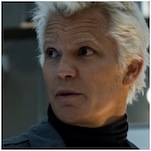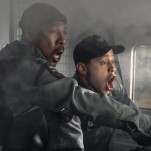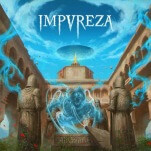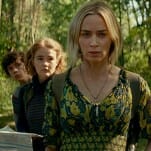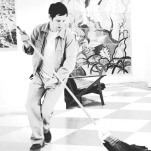The Beginning and End of Carnival Row: An Ode to Amazon’s Abandoned Original Fantasy Show
The series returns to Prime Video for its second and final season four years later.
Photo Courtesy of Prime Video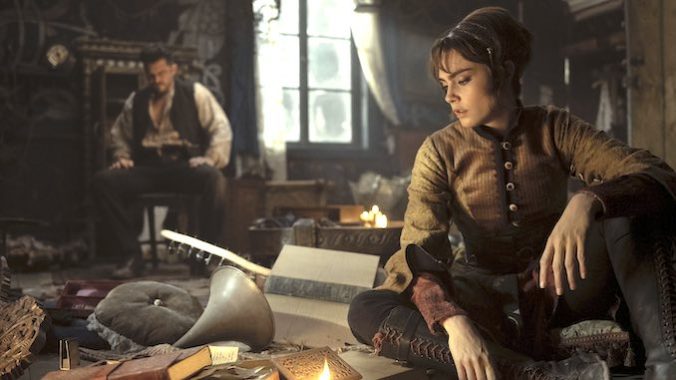
Let me tell you a dark, mysterious, and magical tale. The story of how an original idea becomes a multi-million dollar TV series that eventually got dumped in the garbage.
The story of Carnival Row begins long before there were streaming wars fought over market share. In 2005, Travis Beachum, a recent college graduate, had his first spec script bought by New Line Cinema. The “dark neo-noir fantasy thriller” called A Killing on Carnival Row soon grabbed the attention of directors like Guillermo del Toro and Neil Jordan. After years of development hell, Amazon Studios bought the script in 2015 and decided to turn it into a big-budget fantasy series.
Amazon’s streaming catalog in 2015 was a strange place. Their first original drama series Bosch had just aired. The idea was spreading through Hollywood that this streaming thing Netflix pioneered might just be The Thing that propels TV production into the digital age. Netflix already had gritty, critically acclaimed Marvel shows, and House of Cards was getting nominated for Emmys every year. Netflix even blew $80 million dollars on the Wachowski sisters’ insane sci-fi fever dream Sense8. Amazon needed something big. Something original.
Carnival Row spent several years in development with Guillermo del Toro attached as a serious creative partner. He was going to produce, direct, and co-write the show alongside co-creator Rene Echeverria and Beachum. Del Toro and Beachum previously worked together on Pacific Rim, with Beachum being credited for the story and co-writing the screenplay. Thus, Carnival Row was set to be a huge original fantasy series, Amazon’s answer to Netflix’s big budgets and the new dark fantasy TV market that Game of Thrones opened up.
But by 2017 del Toro was no longer attached in any form. The show eventually premiered in 2019, starring Cara Delevingne and Orlando Bloom. It received a mixed/poor response from critics. The series was bloated, bland, and not worth the investment in an age of Peak TV when 1000 great shows are competing for your attention.
Carnival Row was always going to be a weird sell to audiences. Its neo-noir “steampunk with fae folk” gimmick is a niche interest even in the fantasy community. But for those who love that genre, there’s a lot to love in Carnival Row. It has extensive world building, lots of political intrigue, and pretty bland characters you can project anything you want onto. If you’ve ever wanted to see pixies fly around Victorian Streets or a satyr-esque creature read by candlelight in a three piece suit then you’re in luck.
But Carnival Row is also very silly. Names like Vignette Stonemoss and Rycroft Philostrate (Philo for short) sound like parodies of fantasy naming conventions. The show has several slurs for its magical creatures. The dialogue is poor, mostly consisting of characters saying exactly what they mean with little nuance or intrigue. Complicated ideas are introduced but underdeveloped. There is a wall that prevents the show from feeling lived in. Carnival Row was always an imitation, always trying to be the next big creative endeavor, but lacking in the required creativity.
There’s also the colonialism thing. Carnival Row is heavily inspired by British colonialism, where the fae folk are the oppressed and colonized class. But Carnival Row’s understanding of politics is extremely elementary, reminiscent of someone who vaguely remembers learning about the British Empire in high school and tries to develop on those fragments. Season 2 features an especially egregious development when the show adds a Communist uprising to the mix and handles that ideology with the care of a chainsaw in a tornado.
With all that being said, despite the many complaints I have for Carnival Row, I have a lot of respect for it. This may sound back-handed, but I don’t like it when every TV show is good. It’s exhausting. TV production is so big and involves so many cooks in the kitchen that a show that just doesn’t work to its core is rare, especially one that costs tens of millions of dollars.
Sometimes it’s fun to just try out an idea. For all its faults, you can’t say Carnival Row didn’t try. And some people really loved this weird creature. Carnival Row managed to make it to air. It exists. It’s a completely original IP that existed for 2 whole seasons. There were graphic novels, audio books, and roleplaying games based on an original idea written by a fresh college graduate in 2005.
But the story of Carnival Row’s existence also includes its messy end. The show was halfway through filming Season 2 when production got shut down by the pandemic in March 2020. It took a year for filming to resume. By the time Season 2 airs, Carnival Row will have spent 4 years off the air. In a depressing marker for the fickle world of streaming and the frequency of 1-2 season series, the show is currently the 4th oldest ongoing Prime Video TV series. It’s only been 4 years. Two seasons.
-

-

-

-

-

-

-

-

-

-

-

-

-

-

-

-

-

-

-

-

-

-

-

-

-

-

-

-

-

-

-

-

-

-

-

-

-

-

-

-









